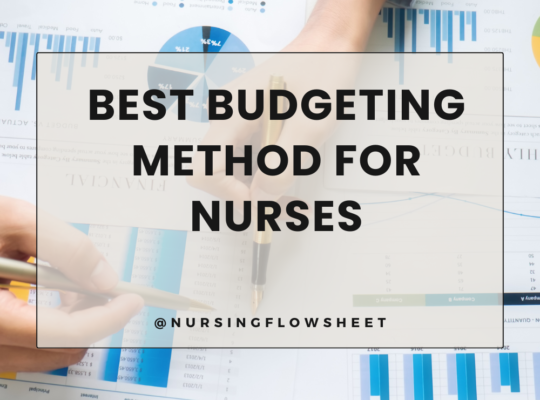Real estate investing presents a unique opportunity for nurses to build wealth and achieve financial stability. As a stock market investor, I am a proponent of diversifying your investments just like how you do with your investment portfolios.
This guide will walk you through the basics of real estate investing, tailored specifically to the nursing community. From getting started to weighing the pros and cons, let’s explore the world of real estate investing for nurses.
Setting the Foundation for Real Estate Investing
- Educate Yourself: Just as you continuously update your medical knowledge, start by learning about real estate investing. Familiarize yourself with key terms, strategies, and concepts. Resources like online courses, books, and podcasts can provide invaluable insights.
- Set Clear Goals: Define your financial objectives for real estate investing. Are you aiming for passive income, long-term wealth accumulation, or diversification of your investment portfolio? Tailor your strategy based on your goals.
- Budgeting and Financing: Assess your financial situation and set a budget for your real estate investments. Explore various financing options such as traditional mortgages, FHA loans, or partnerships with fellow nurses.
Benefits of Real Estate Investing for Nurses
- Steady Passive Income: Real estate investments, like rental properties, can provide a consistent source of passive income. This supplementary income stream can help you achieve financial stability and even reduce your reliance on overtime shifts.
- Tax Benefits: Real estate investors enjoy numerous tax advantages, including deductions for mortgage interest, property taxes, and property management expenses. These tax incentives can significantly lower your overall tax liability.
- Long-Term Wealth Building: Real estate has historically appreciated in value over time. By investing wisely, nurses can potentially benefit from both rental income and property appreciation, contributing to long-term wealth accumulation.
- Diversification: Real estate serves as an excellent diversification tool for your investment portfolio. It behaves differently from stocks and bonds, providing a buffer against market volatility.
Cons of Real Estate Investing
- Initial Capital: Acquiring a property requires a significant upfront investment. Nurses need to carefully assess their financial situation and explore financing options that align with their budget.
- Active Involvement: While real estate can offer passive income, it’s not entirely hands-off. Property management, maintenance, and tenant relations demand some level of time and effort.
- Market Risks: Real estate markets can be subject to fluctuations. Economic downturns can impact property values and rental demand, affecting your investment returns.
- Learning Curve: For beginners, there is a learning curve associated with real estate investing. From property selection to understanding legalities, taking the time to learn is crucial.
If you want to learn how to invest in the Stock Market instead, Read How to Get Started with Investing
Why You Need to Invest in Real Estate if you’re a Nurse
- Flexibility: Real estate investing offers the flexibility to manage your properties around your nursing schedule. You can set up property management systems that work for you.
- Utilize Medical Knowledge: Your understanding of healthcare environments can translate into effective property management. Safety, cleanliness, and attention to detail are skills you already possess.
- Community Impact: By providing quality rental housing, you contribute positively to your community while generating income.
- Networking: Real estate investing opens doors to networking opportunities within both healthcare and real estate circles.
If you want to learn passive real estate investing, check out this podcast interview I have with Savannah Arroyo RN who is a Real Estate Investor: Listen Here
In Conclusion,
Real estate investing holds promising opportunities for nurses seeking financial stability and long-term wealth. By educating yourself, setting clear goals, and understanding the pros and cons, you can make informed investment decisions. Remember that real estate investing requires patience, learning, and adaptability, qualities you’ve already honed as a nurse. With dedication, you can embark on a journey towards financial freedom and security while continuing to make a difference in the lives of others.






